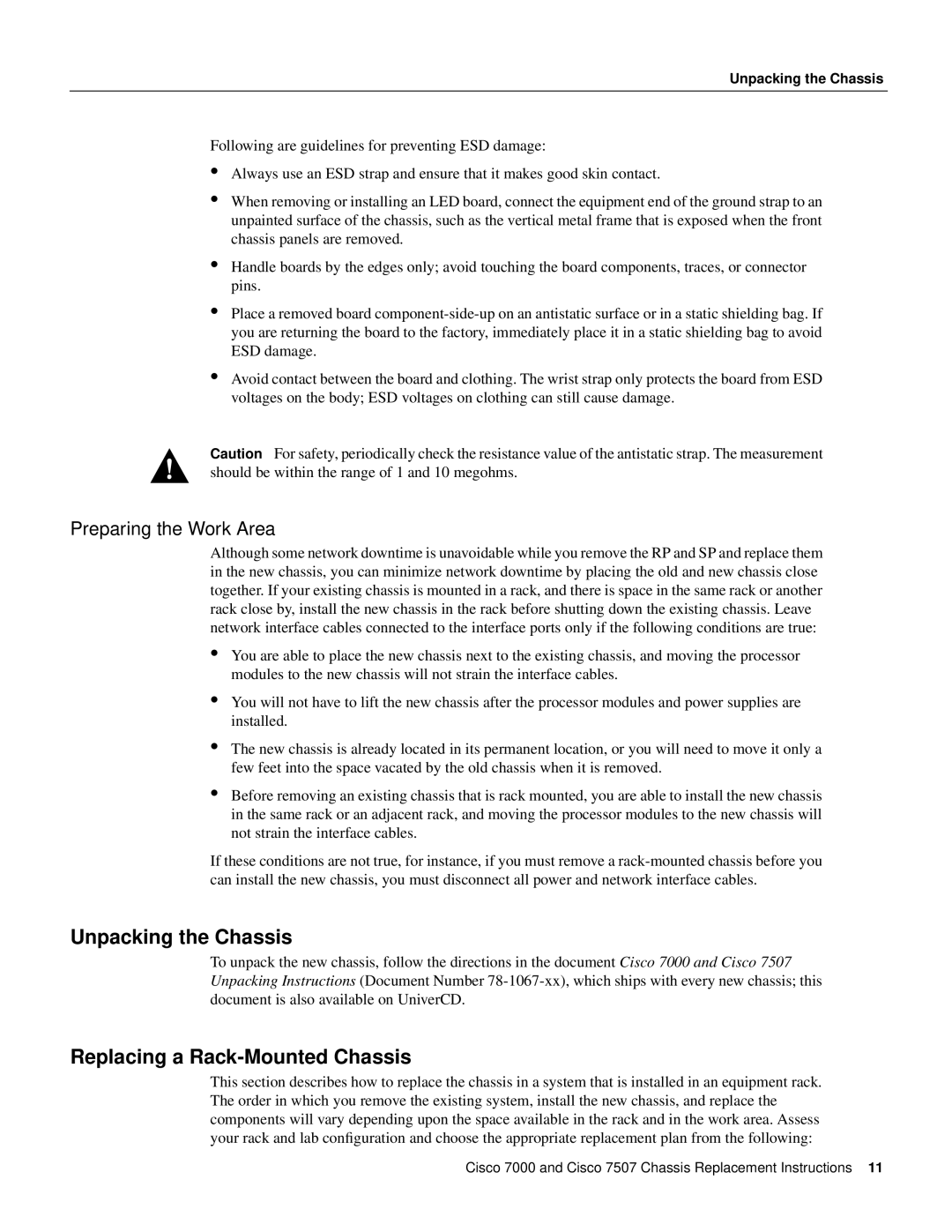
Unpacking the Chassis
Following are guidelines for preventing ESD damage:
•Always use an ESD strap and ensure that it makes good skin contact.
•When removing or installing an LED board, connect the equipment end of the ground strap to an unpainted surface of the chassis, such as the vertical metal frame that is exposed when the front chassis panels are removed.
•Handle boards by the edges only; avoid touching the board components, traces, or connector pins.
•Place a removed board
•Avoid contact between the board and clothing. The wrist strap only protects the board from ESD voltages on the body; ESD voltages on clothing can still cause damage.
Caution For safety, periodically check the resistance value of the antistatic strap. The measurement should be within the range of 1 and 10 megohms.
Preparing the Work Area
Although some network downtime is unavoidable while you remove the RP and SP and replace them in the new chassis, you can minimize network downtime by placing the old and new chassis close together. If your existing chassis is mounted in a rack, and there is space in the same rack or another rack close by, install the new chassis in the rack before shutting down the existing chassis. Leave network interface cables connected to the interface ports only if the following conditions are true:
•You are able to place the new chassis next to the existing chassis, and moving the processor modules to the new chassis will not strain the interface cables.
•You will not have to lift the new chassis after the processor modules and power supplies are installed.
•The new chassis is already located in its permanent location, or you will need to move it only a few feet into the space vacated by the old chassis when it is removed.
•Before removing an existing chassis that is rack mounted, you are able to install the new chassis in the same rack or an adjacent rack, and moving the processor modules to the new chassis will not strain the interface cables.
If these conditions are not true, for instance, if you must remove a
Unpacking the Chassis
To unpack the new chassis, follow the directions in the document Cisco 7000 and Cisco 7507 Unpacking Instructions (Document Number
Replacing a Rack-Mounted Chassis
This section describes how to replace the chassis in a system that is installed in an equipment rack. The order in which you remove the existing system, install the new chassis, and replace the components will vary depending upon the space available in the rack and in the work area. Assess your rack and lab configuration and choose the appropriate replacement plan from the following:
Cisco 7000 and Cisco 7507 Chassis Replacement Instructions 11
